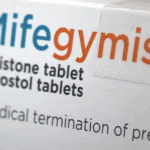By Jonathon Van Maren
September 28, 2016
I touched down in Houston, Texas, in mid-afternoon with my colleague Josh Gilman, the executive director of the two-year-old Canadian anti-porn start-up, Strength to Fight. We were flying in to attend the third annual Coalition to End Sexual Exploitation Summit, a gathering of anti-porn activists, researchers, scholars, and organizations from around the world for three days of strategy, seminars, and presentations.
The Summit was being held at the Omni Houston Hotel, a sprawling complex with an enormous waterfall and fishpond that nearly fills the lobby. As we walked in, giant, rather grotesque-looking goldfish swarmed at the edges, leaping over each other in hopes of food being tossed in. It was hot outside, the temperature staying around 30 degrees Celsius through the evening. Texas, apparently, also has palm trees.
The hotel lounge, restaurant, and conference area was already beginning to fill up with anti-porn warriors of every stripe, a combination of remnants of the Religious Right, radical feminists such as Dr. Gail Dines, Catholic speakers and clergy members, Mormons—Clay Olsen of Fight the New Drug waved at “the Canadians” as he rushed past in the hallway—evangelicals, and those who had dedicated their lives to battling human trafficking. We bumped into Gabe Deem, the muscled personal trainer and part-time anti-porn activist who runs the website Your Brain On Porn.
Deem tackles pornography from the men’s health perspective, highlighting the fact that pornography is increasingly causing erectile dysfunction in men. It had done that for him, in fact—when he told his girlfriend years earlier that he wanted to wait for marriage before having sex, the reasons he was actually saying it was because porn had destroyed his ability to become aroused by a real person. His critique of porn is going mainstream—he’s been on comedienne Chelsea Handler’s show, he’s been on MTV, and it was his critique of porn that TIME Magazine chose to feature prominently in their recent cover story on the exploding porn plague. We chatted briefly about reaching parents who refuse to believe that their children will be exposed to porn. “Your twelve-year-olds are in the bathroom fapping,” Deem stated in a Texas drawl. “You’ve gotta get over that is what I tell ‘em. How about you guys?”
We headed up to our room soon after, and I settled in to do some pre-conference reading.
September 29, 2016
An anti-porn summit is a weird place. Since there are so few activists who focus on the issue—although the number is growing in leaps and bounds—everyone seems genuinely thrilled to see everyone else. The hallways and restaurant rapidly filled up with people calling out to each other, laughing, and hugging. Booths from a medley of organization sprung up throughout the lobby. Josh and I settled in for breakfast with Jessica Harris of the Beggar’s Daughter, who runs an anti-porn ministry for women.
The conversation, as it always does at such events, went to the dark side quickly as we discussed the impact pornography was having on women—on the skyrocketing rates of those addicted to porn as well as the profound impact the porn use of men was having on their partners. I related a story one pastor told me of a newlywed who confided to her new husband, as they drove away from their wedding reception,her worry that “it was going to hurt.” His response? “It will. I’ll make sure of it.” The marriage lasted six months. The stories Josh was hearing from pastors were even worse—young women calling their pastors from their honeymoons sobbing, because their husbands—often virgins—had actually brought whips and chains along. They thought that’s what sex was all about, because they had learned about sex from porn. Porn is poisonous.
The literature on display at the booths was, quite literally, raw. The National Center for Sexual Exploitation was providing booklets titled “Prostitution: ‘The Zone’ of Raw Male Physical and Sexual Violence.” The bags we were handed at registration contained a full range of pamphlets on the links between pornography and human trafficking, the “War on Illegal Pornography,” “Practical Tools for Raising Porn-Proof Kids,” a half dozen pieces of literature from Women At Risk, which works to rescue women from human trafficking and work with victims towards restoration, pamphlets explaining how to spot trafficking victims, pamphlets from Anchor House, which provides care to abused boys between the ages of twelve to eighteen, adverts for the Museum of Modern Day Slavery, and promos for books introducing these topics to children such as Good Pictures, Bad Pictures.
There was also some anti-porn swag, which led to a few chuckles from conference attendees: a little plastic packet of #genuinelove sugar-free breath mints, a pen from www.giveupur6.com, chap stick from Dirty Girls Ministries accompanying a pamphlet promising “Help, Hope, & Healing for Women with Pornography & Sexual Addiction,” and, bizarrely, a peacock feather masquerade ball mask paper-clipped to a business card from Nurses Against Trafficking.
We headed into the conference hall, bumping into some familiar faces—I chatted with anti-porn scholar and psychotherapist Dr. Mary Anne Layden and presented her with a copy of my new book, which I interviewed her for two years ago. She remembered the interview, and was thrilled to discover that her research was being used in Canada, as well. Matt Fradd of The Porn Effect came over to the table, and we arranged to have a drink later on. The Covenant Eyes team was seated one table over.
Patrick Trueman, the president and CEO of the National Center on Sexual Exploitation, kicked off the Summit around noon, bounding onto the conference stage with an enormous smile, clearly excited at the huge turnout. He pointed around the packed hall, calling out countries: We’ve got people from Australia here! Mexico! Uganda! South Africa! Canada! He then took a moment to invite a standing ovation for law enforcement, which, for some reason, seems more political in 2016 than it used to. He then called on Joshua McDowell—author of an impressive 147 books—up onstage to open in prayer.
***
Matt Fradd, as it turned out, was the first speaker. His non-stop, hilarious, and slightly neurotic style of speaking makes him alternatively sobering and uproarious, and his Australian accent accentuates the effect. “Some people go to ComiCon to find their people,” he said to a crowd laughing with agreement, “I come here.” He addressed the diversity in the room right off the bat: “We’ve got everyone here! Catholics, Jews, evangelicals, atheists, Mormons—give it up for the Mormons! They put the rest of us to shame fighting sexual exploitation—and without coffee!” This coalition is essential, Fradd pointed out to applause. He quoted Dr. Peter Kreeft: “When a maniac is at the door, feuding brothers reconcile.” The maniac at every door today, as speaker after speaker highlighted, is pornography.
It’s easy to see why Fradd manages to captivate fifty to seventy thousand teens a year on the topic of pornography—his porn presentation is a repertoire of witticisms that exposes how ridiculous pornography actually is.
People say porn is sex-positive! Yeah, it’s so sex-positive that I have to creep off to my bathroom to have an intimate encounter with an iPhone.
You wanna be the kind of guy who has to sneak away from his wife at night to stare at a cell phone screen?
Saying that if we don’t have porn people would be sexually repressed is saying that if people aren’t obese, they’ll be anorexic.
Fradd also laid out precisely why porn isn’t just wrong because of its consequences—cognitive impact, addictiveness, sexual violence, impotence—because then we’d just regulate it. Porn is inherently wrong—porn violates the dignity of the human person and destroys love. “If we don’t get love right, we don’t get life right,” Fradd said beseechingly, pounding the podium. There were murmurs of agreement all around. “Love, as Aquinas and Aristotle said, is to will the good of the other. The human person is a good, to which the only proper attitude is love. Love is our origin, love is our vocation, and love is our destiny.”
Fradd ended his speech with a plea for unity—his talk was called “Stronger Together,” which is to be distinguished from the Hillary Clinton campaign slogan as an actually good thing—and ended by relating his response to an interviewer who asked him: “So who would your biggest competitor be? Fight the New Drug?” Fradd raised an eyebrow. “Uhhhh, no. That would be PornHub.”
***
Next up was Dr. Donald Hilton, a neurosurgeon from the University of Texas. I’ve been familiar with his work for quite some time: he advocates for pornography to be treated as a public health crisis, and draws strong parallels to the tobacco industry of the past.
“The porn industry is just like the tobacco industry,” Hilton pointed out. “They’re trying to get people hooked young. In the face of overwhelming evidence, pro-porn scholars try to cast doubt by referring to ‘perceived addiction’ and question studies.”
Hilton calls them the “porn profs,” listing David Ley, Nicole Prause, and Peter Finn as prime examples, and pulling up slides showing them palling around with porn stars and exchanging tweets with those in the industry. The porn profs, it seems, are the tobacco apologists of today. This is in spite of the appalling violence that characterizes modern porn. Hilton cites one male porn performer commenting, horribly and off-handedly, that “Girls in porn are holes for me to put my penis into.” Nothing more. Aesthetically-shaped chunks of meat.
Hilton breezed through dozens of slides explaining the neuroscience behind porn use, describing his awe during brain surgeries where he stopped to gaze at the delicate, white connecters floating in brain tissue, the receptors for hope, love, ambition, and everything in between. He explained how porn destroys memory, how it hijacks natural sexual instinct and perverts and distorts it, and how adolescents are especially vulnerable and more easily hijacked.
ISPs, Hilton states firmly, must place porn behind a paywall to project children. Porn is becoming the primary sex educator of an entire generation—a theme that crops up often in the seminars—and “tells girls that they are a collection of orifices for the pleasure of men and boys that they are brutal, sex-driven brutes.” Neither of these are true. Both are a lie. And the culture must throw its weight against this cyber-driven savagery.
***
Dawn Hawkins, the executive director of the National Center on Sexual Exploitation takes the stage next. She starts with a silence-inducing statement:
“My children will be exposed to pornography despite my best efforts.”
As a mother, she is particularly horrified by the types of porn that have gone mainstream. “Popular themes today,” she notes, “include rape or extreme violence, child, or teen, incest, racism, and slavery.” The sentence alone is cringe-worthy. Porn is also spreading because it is available, anonymous, and affordable—and the porn industry is using increasingly sophisticated tactics to get kids hooked young. Dr. Hilton had introduced the subject, and Hawkins spells it out in gory detail.
One mother called her, she relates, after she found her ten-year-old son watching hardcore porn. He’d been watching it for weeks. How had he found it? It had been cleverly embedded in a “How-To” video game instructional on YouTube. Another mother and her child stumbled across porn while searching for American Girl dolls. And it gets even worse: my own research has shown how porn companies are tagging hardcore porn movies with tags like “Dora the Explorer,” hoping that kids will end up hooked on porn as fast as possible.
It’s working, too. A new study, Hawkins reveals, discovered that 93% of boys and 61% of girls are first exposed to porn during adolescence, and more than a quarter of them discover it before puberty. Rising rates of sexual aggression among young children can be traced directly back to the sex primers they are having delivered right to their homes by the predatory porn industry. They’re coming after your children. And they’re doing a good job of it.
Hawkins ends with advice: Make use of all the tools available. Get filters, use software settings, get accountability programs, utilize the safe search options on Google and YouTube. And above all, have open conversations with family members regularly and often. Only by keeping one another accountable and facilitating openness can families become and remain porn-free.
***
Josh McDowell’s presentation on pornography and the church reduced much of the hall to stunned silence. He bounded onto the stage looking like he’d just arrived from Hawaii—burnt-red suntan, open-collar red button-up shirt, and glinting silvery hair. He was smiley and exuberant, but his analysis was devastating.
His audiences have been legendary. He has done over 34.000 talks to multi-millions of teenagers, he says, and he has spoken to more kids than anyone in history. And then, eight years ago, he began to wonder why the worldviews of kids were shifting so dramatically. And then he realized what is was: pornography.
Nobody can really fathom the size of the porn problem, McDowell noted—but he threw out a few numbers just to give us an idea. There are now over 2.3 billion porn webpages, which would take one person more than four million days to view. On one porn site alone last year, 78.9 billion porn videos were watched, and on another side, in one month, enough porn was transferred that if it were printed out, it would fill 540 million filing cabinets. Another site dispensed enough porn that if printed out, it would fill the Empire State Building to the brim.
In spite of all of this, McDowell says, the church is tremendously ignorant about the porn threat. At least 47% of Christian families report porn as a major problem, and it is the spouses of porn addicts, McDowell believes, that are the most suffering people in the churches right now. And the flocks are often leaderless—in one 2002 survey of 6,000 pastors, 30% had viewed porn in the last month. That number is probably low. “Addicts lie,” McDowell comments sardonically. Pastors, he says, too often do not follow the advice they give their church members: They do not get accountable. This, McDowell believes, is an urgent problem.
Thousands upon thousands of church leaders are hooked on porn. 72% of men who claim to be born-again Christians actively seek out pornography. 34% of Christian women actively seek out pornography. Only 11% of Christian teens have one friend who is willing to say that porn is wrong. 93% of Christian teens talk about porn in a cavalier or actually positive and encouraging manner. The only good statistic McDowell can cite is that 26% of regular church attendees are less likely to look at porn than those who do not. Google, McDowell says, echoing previous speakers, has replaced the churches as the provider of beliefs on sexuality.
McDowell gives examples. He tells us about one mother, who found her eight-year-old son watching hardcore porn on her smartphone because he’d heard about it at his Christian school. Another child told his parents he watched porn because the kids in the locker room told him he was gay for not watching it. One Christian school in Eastern Europe took a survey of their 300 students to ask them if they watched porn on the Internet—and every single one of the 300 students stated that they did.
The answer to all of this, says McDowell, is a biblical view of beautiful, healthy sexuality. Children are going to run into pornographic imagery, he emphasizes, and when they do, they must be able to discern between real sexuality and counterfeit sexuality. And just as Fradd pointed out earlier, people cannot beat porn on their own. Churches are necessary. Families are necessary. Friends are necessary. Openness is necessary.
He ends with a story that echoes my own experience, something his daughter told him: The reason I held out for real sexuality, she said, was because she wanted the beautiful thing she saw shining through in her parents’ marriage. Children must see beautiful relationships to desire beautiful relationships.
***
Following McDowell, Dr. May Anne Layden took the stage. Layden is one of my anti-porn heroes—her work is brilliant, and her character reminds you of a grandmother you want to love minutes after meeting her. Her presentation is so rapid-fire—and I say this as someone who speaks like an over-caffeinated auctioneer—that I give up taking notes halfway through.
Her talk is titled “Addiction and Betrayal Trauma: Offering Hope and Healing,” and she draws from years of research and treating both the victims and the perpetrators of sexual exploitation.
The symptoms of sexual addiction are myriad: compulsivity, lying and hiding, preoccupation, the inability to control yourself, loss of interest in other activities, withdrawal if porn-viewing is ended or curbed, the ignoring of obvious consequences, and the use of escapism. Internet sex, she declares, is slavery.
Like the other speakers, she gives examples. Business men who go into the office, lock their door, log onto porn sites, and log off eight hours later. Husbands who get up just after the wives fall asleep, and crawl back into bed just before their wives wake up. Men who get so preoccupied that repeated attempts to stop or slow down persistently fail, and who increasingly escalate the perverseness of the material they consume. Everybody says they won’t watch child porn, or bestiality, or other forms of Internet-transmitted depravity, says Layden. But many, many of them do. What disgust people ends up arousing them, and even the risk and the danger becomes part of the arousal.
Therapy is necessary for nearly all forms of what she calls cyber-sex addiction. Addicts have to develop a definition of acting out, she says, and identify their personal triggers, whether it be depression, anxiety, or a whole array of other factors. Addicts have to honestly analyze the cost-benefit of their addiction, and denial must be challenged—all porn addicts are in denial. They’re pretending it’s not hurting them even though, Layden states firmly, “Porn will make you not be able to have sex.” They pretend they’re not hurting those around them, even though they inevitably do. She points to the inevitable disgust and self-loathing that kicks in immediately after masturbation is completed, something Texas researcher Dr. Robert Jensen has discussed with me on my radio show.
Porn, says Layden, twists our thinking. And like almost every other speaker so far, she returns to the greatest enemy of porn: love. Porn teaches us that sex is not about intimacy, caring love, or respect, she points out in rapid-fire succession. It teaches us that sex is about servicing, that sex isn’t about procreation, that we don’t need to know our partners, that men need sex like oxygen or water, that women are simply physical beings to masturbate into, and that women enjoy sexual violence. These views, she says, need to be abolished—abolished, and replaced. Replaced with a healthy view of sexuality that emphasizes love and intimacy.
It is because porn is a direct threat to these things that the partners of porn often suffer what Layden calls “betrayal trauma” When a partner, usually a wife or girlfriend, discovers that her husband or boyfriend is looking at porn, this can be a literally world-destroying discovery. The questions this discovery triggers, says Layden, are a full-fledged identity crisis: Who am I? Who is he? Who are we? Can I trust him? Can I trust anyone? How can those who are supposed to love me the most betray me this way?
The first thing to recognize, Layden highlights, is that it isn’t the fault of the partner. The second thing to do is layout a path to re-establishing trust. These, she says, are essential to rebuilding a relationship. She ends her presentation with two quotes, the first by Roger Scruton: “Pornography threatens the loss of love in a world where only love can bring happiness.”
And then, finally, from William Penn: “Let us see what love can do.”
***
More to come….









Hi, Jonathon! I caught your article on LifeSite and linked back here. I missed the CESE conference this year (was laid up in the hospital/ICU instead–yuck!) Thank you SO much for taking the time to write about the Summit in detail. I’ve been hunting for a good report from the conference so I could link back to it from my blog. I just might spotlight your post/s during WRAP Week (White Ribbon Against Pornography), which starts tomorrow! I hope that’s ok. Love your work. Keep it up!
It certainly is! Thanks Melody!